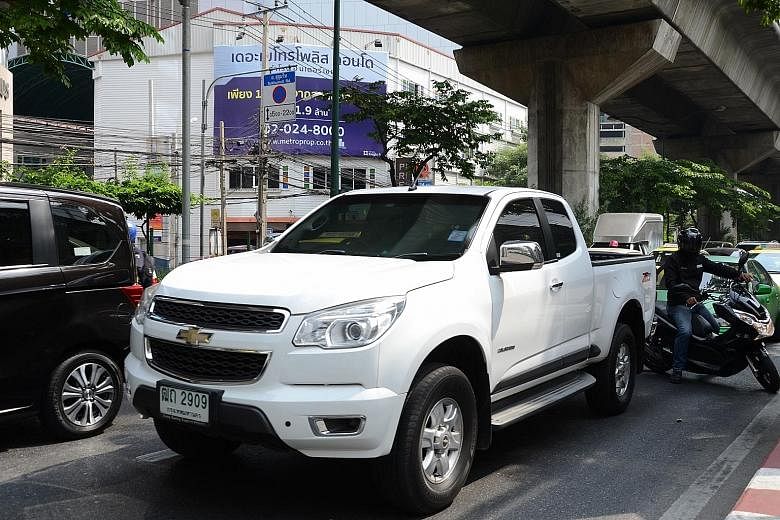With low commodity prices putting farmers under pressure last year, rubber and palm farmer Thamasak Sondhicuoi found himself buying two Toyota pick-up trucks from his relatives.
He was obliged to do so because they could not keep up with loan repayments. But Mr Thamasak, 45, from the southern province of Surat Thani, is wondering if he is the one who will go broke next. "Buying a new car is out of the question for all of us," he told The Straits Times.
"Even though I am a little bit better off than my relatives, I don't know how long I can handle this."
Thailand's multibillion-dollar auto industry weathered tough conditions last year as the high household debt of about 80 per cent of gross domestic product, as well as lower-than-expected government spending, kept a lid on vehicle purchases all year.
A new excise tax regime that kicked in at the start of this year now poses another challenge. The tax, which is based on fuel efficiency, carbon dioxide emissions, as well as the compatibility of the vehicle with greener fuels, is aimed at nudging consumers towards more environmentally friendly cars.
While buyers of greener vehicles will enjoy tax savings, those driving specific makes of pick-up trucks, large cars and sport utility vehicles will end up paying more.
The tax ranges between 3 per cent and 50 per cent. According to reports in the Bangkok Post, a passenger car that is not compatible with E85 gasohol fuel could attract an estimated additional tax of between 60,000 baht (S$2,300) and 500,000 baht. E85 is a mixture of 85 per cent ethanol and 15 per cent petrol, which produces lower emissions than pure petrol.
Industry analysis firm LMC Automotive said it expects domestic sales to decline 2 per cent for the full year, which would continue its slide from last year. Yet, there are a lot of hopes being pinned on this sector, which accounts for about 12 per cent of Thailand's gross domestic product, and boasts infrastructure and supporting industries that allow it to produce more cars than regional competitors such as Indonesia and Malaysia. Thailand is also one of the world's top markets for pick-up trucks.
It was this sector that the then Puea Thai government sought to protect - after the devastating floods in 2011 - by introducing a 100,000-baht tax subsidy for anyone buying his first car. The scheme inflated domestic sales to 1.4 million vehicles in 2012, and 1.3 million in 2013, but has put the industry on a painful descent since.
The country produced some 1.76 million vehicles from January to November last year, according to data from the Thailand Automotive Institute. About 700,000 of them were purchased locally.
The scheme was also blamed for pushing household debt to unsustainable levels, limiting the ability of the country to spend its way out of anaemic economic conditions.
Moribund farm income, worsened by the absence of generous farm subsidies offered by the pre-coup government, is also crimping sales of the pick-up trucks, which tend to make up about half of vehicle sales in the country.
The military government has pledged to accelerate large-scale infrastructure projects like railways this year to stimulate spending amid the weak export climate.
Earlier this week, it also announced plans to set aside another 70 billion to 100 billion baht in this year's Budget. But analysts said the bigger boost will probably come from elections, which will not be held until next year, at least.
Mr Chukiat Wongtaveerat, a senior manager at Ipsos Business Consulting, said: "If there is a concrete road map for the election, and people have something to look forward to, overall market sentiment would be better."

